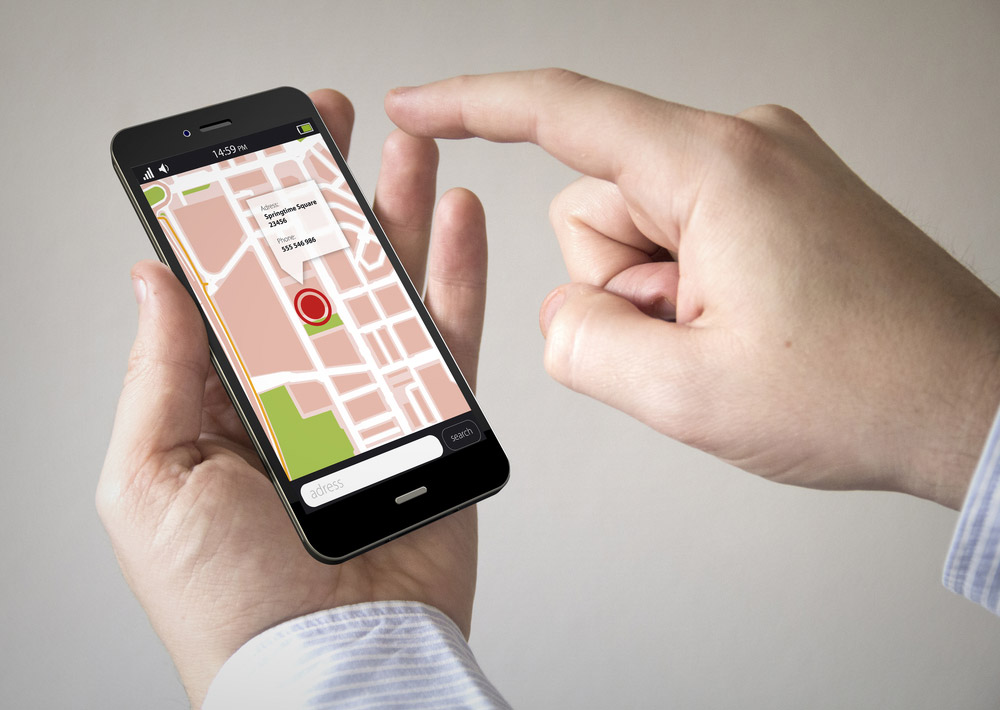Your phone is tracking your location: Here's how to stop it
Over 12 million exposed, according to new report

Here at Tom’s Guide our expert editors are committed to bringing you the best news, reviews and guides to help you stay informed and ahead of the curve!
You are now subscribed
Your newsletter sign-up was successful
Want to add more newsletters?

Daily (Mon-Sun)
Tom's Guide Daily
Sign up to get the latest updates on all of your favorite content! From cutting-edge tech news and the hottest streaming buzz to unbeatable deals on the best products and in-depth reviews, we’ve got you covered.

Weekly on Thursday
Tom's AI Guide
Be AI savvy with your weekly newsletter summing up all the biggest AI news you need to know. Plus, analysis from our AI editor and tips on how to use the latest AI tools!

Weekly on Friday
Tom's iGuide
Unlock the vast world of Apple news straight to your inbox. With coverage on everything from exciting product launches to essential software updates, this is your go-to source for the latest updates on all the best Apple content.

Weekly on Monday
Tom's Streaming Guide
Our weekly newsletter is expertly crafted to immerse you in the world of streaming. Stay updated on the latest releases and our top recommendations across your favorite streaming platforms.
Join the club
Get full access to premium articles, exclusive features and a growing list of member rewards.
An entire location-tracking industry has grown up around smartphone apps, The New York Times reported today in a huge interactive story that is being touted as the first of a multi-story series.
The Times was given a database containing 50 billion location pings from 12 million smartphones collected over "several months" in 2016 and 2017. The newspaper wouldn't identify the source, but said it came from "a location data company" that apparently works with mobile advertising networks.
The data let the reporters track individual smartphones through New York City, Washington, D.C., Los Angeles and even President Donald J. Trump's Mar-a-Lago beach club in Palm Beach, Florida. Maps of smartphone pings overlaid on the Pentagon clearly showed blank areas where secure phone-free rooms are likely located.
The researchers followed the phones of attendees at Trump's inauguration and protesters later that same day, including the wife of a "senior official at the Department of Defense." They followed the phone of a Microsoft engineer who visited the Amazon campus across town for what turned out to be a job interview.
They tracked the phone of a Los Angeles resident who "was found traveling to and from roadside motels multiple times, for visits of only a few hours each time" -- perhaps a serial adulterer, or maybe just a plumber making service calls.
However, this Times report is in the Opinion section, perhaps because it raises a lot of philosophical questions about the nature of privacy in a open society that aren't easily answered.
It's also because, frankly, it's not news. The fact that smartphones track your movements has been known for decades. The ways in which mobile ad networks can be used to track individuals is less well known, but many publications have reported on it.
Get instant access to breaking news, the hottest reviews, great deals and helpful tips.
At the DerbyCon 2018 information-security conference, we saw researcher Mark Milhouse track individuals using mobile ad networks in much the same way the Times did.
How to minimize smartphone location tracking
If you're concerned by the ways in which smartphone apps and associated ads can track your location, then turning off location services on your phone will take care of 90 percent of the problem.
On some Android phones, you can do so in the swipe-down menu on the splash screen; on others, you might have to dig around in the Settings menu. On an iPhone, it's Settings > Privacy > Location Services.
You can also partly manage the advertising IDs that both Android and iOS phones use to identify you. Those IDs aren't tied to your name, but it would be pretty easy to figure out your identity just by following where you work and live. You can reset them to give yourself a new pseudonymous ID number and also minimize their usage, but you can't get rid of ad IDs altogether.
On Android, go into Settings > Google > Ads. You'll get options to reset the advertising ID and to opt out of advertising personalization. On iOS, go to Settings > Privacy > Advertising. You'll be able to both reset the ad ID and limit ad tracking.
Those two steps will minimize how much location data advertising networks and third-party apps can get from your phone, though it won't get rid of it all. The Times recommends also going to your Google account's settings and managing the location history that that Google collects.
You can turn the function off and even delete collected data, although leaving your location services turned off on your phone will mostly amount to the same thing.

Paul Wagenseil is a senior editor at Tom's Guide focused on security and privacy. He has also been a dishwasher, fry cook, long-haul driver, code monkey and video editor. He's been rooting around in the information-security space for more than 15 years at FoxNews.com, SecurityNewsDaily, TechNewsDaily and Tom's Guide, has presented talks at the ShmooCon, DerbyCon and BSides Las Vegas hacker conferences, shown up in random TV news spots and even moderated a panel discussion at the CEDIA home-technology conference. You can follow his rants on Twitter at @snd_wagenseil.
 Club Benefits
Club Benefits










